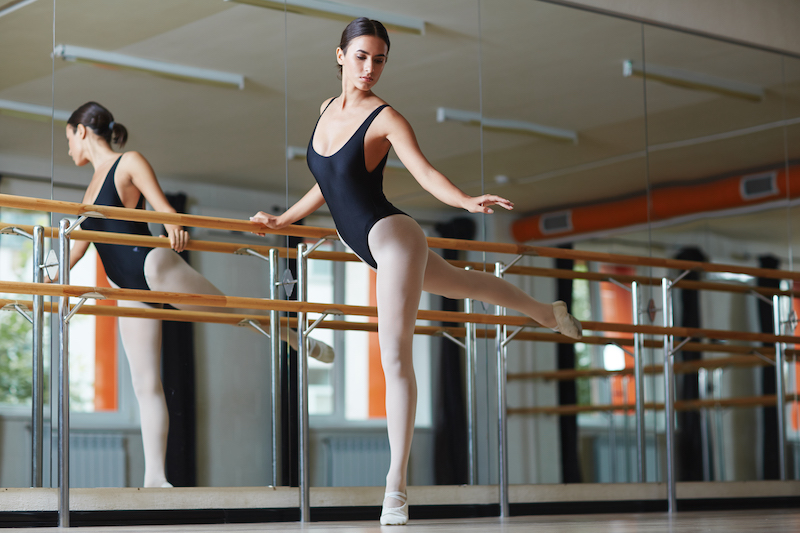Many high school students have a deep passion for art and wish to pursue it further, in college and beyond. In this guide we’ll break down the requirements to apply to college as an artist, and how they differ across disciplines.
While students interested in the arts are often lumped together, each field has its own unique challenges. In this guide we divide the arts into two genres: those who require portfolios, and those who require auditions. We’ll give tips specific to applications for and disciplines within each. As with every other specialized subject, art is a competitive field in college, but do not let that discourage you. We hope that the information we provide here will allow you to make well informed decisions about your future, both in college and within art.

These are works confined in space and time, created once then returned to at will. This includes drawing, painting, sculpture, photography, and more recently fields of digital art. While the mediums used in these fields differ greatly, they can all be represented by still images in a portfolio.
Art programs usually have the same requirements as the base college, and ask for a portfolio and a letter from an art instructor on top of them. These are meant to show your artistic experience, vision, and technical skill.
Students in the following fields are usually expected to submit a portfolio when applying to an art program, and will generally benefit from the inclusion of a portfolio with their application:
While you may or may not be required to submit a portfolio, depending on school, department, and major, a portfolio will often benefit your application. You should, however, always check to see if a portfolio is required or accepted before applying.
Art programs are looking for the following information about you within your portfolio:
When it comes to building a portfolio, it is best to start early; creating art to fill it out often takes a great deal of time and effort. Your first step is to determine the exact requirements of the portfolio. These can differ greatly between schools and programs, and failure to follow them will get your application discarded. You should be certain of deadlines, how many pieces are expected (generally 10-20), and any size requirements of the pieces, both in terms of images and for the physical pieces themselves.
Searching for examples of past portfolios can help you in constructing your own. There are many examples available online from previous students, and some art programs will display particularly good examples on their websites. You should not copy the art of others, but seeing these portfolios can give you a sense of the scale and organization you should aim for when constructing your own.
Once you know the requirements, it’s time to begin selecting pieces. These can be created for class, or independent projects. You should create more art than you need, so you can be selective when building a portfolio. Most programs ask for art that has been created recently, usually within the past few years.
Make sure all of your work shows originality, creativity, and your breadth of skills. You want to put your best foot forward with your choices. Most schools ask for online submissions; this will mean taking pictures of your art and uploading them. Make sure any photos you take are high quality; you want admissions officers to be able to judge your art, and they won’t be able to if they can’t see it clearly.
Finally, you should always ask your art teacher to review your portfolio. They have been helping students with this for a long time, and they will likely be able to give you useful advice on what pieces to include, and how they should be presented. Again, do not do this last minute; you should begin thinking about this during your junior year or even earlier.
Most art programs also ask for letters of recommendation from an art teacher. This can come in addition to or in place of letters from your academic teachers. Since this varies by school, you should always check the requirements. If you are planning to apply for a major in the arts however, you should always consider asking one of your art teachers for a letter of recommendation. They will be able to speak to your vision and dedication as an artist.

These are art forms which are performed live, for an audience. Since the performance is the art, these programs generally have an audition component for admission. This can vary by school and program, but most reputable programs do not accept students sight unseen. As with a portfolio, the audition is a place to demonstrate your skill, vision, and artistic expression. The following fields generally require an audition:
Auditions can take place either in person, or via a prerecorded video submitted online; the latter option has become increasingly popular recently, especially so due to the pandemic. Programs are looking for the following things in an audition:
When preparing for an audition, the first thing to do is determine what the program requires. Look for deadlines, audition dates, and what is expected of you. What will you be asked to do, and what skills will you be asked to demonstrate? These will vary widely between disciplines. Theatre students are generally asked to prepare a monologue, musicians perhaps to perform a prepared piece and sightread both, and dancers to take a full class.
What schools ask for in an audition often parallels what is expected in professional auditions in the field, as college programs are often the first gatekeeper to professional life within an artistic field. Thus the college audition system is set up in a way that mimics the professional experience.
If your audition is in-person, they are often held over a limited span of time; these dates are announced well in advance, so begin your planning early. Having to travel to multiple auditions can limit how any programs you can feasibly apply to. Travelling to schools for an audition can often be combined with a college visit however, giving you a chance to see if the school is the right fit for you, while the school does the same.
Impressions matter in an audition. Make sure to be on time, prepared and dressed appropriately. Most schools will give you a sense of what to expect on their websites, but you should email the program with any concerns.
If you are instead submitting a prepared video in place of an in-person audition, you will have more time to make sure you are technically perfect within it. There will be set requirements for what schools want from a video, in terms of material and technical requirements both. Make sure you meet these exactly, failure to do so can cause your tapes to be discarded out of hand. Different schools will often have different requirements; read each carefully.
Make sure your attire is appropriate, your lighting is good, and editing for the video is done as necessary. Using a high quality camera or audio equipment is recommended, to make sure viewers get a full sense of your artistic abilities. We also suggest recording several takes, and only sending in the best one. You have enough time to do this right, so take advantage of that. Colleges know this as well, and are more likely to judge small mistakes more harshly.
Finally, you should always ask your teachers for help when preparing for an audition. They have likely auditioned many times themselves, and will be able to give you advice on what to expect, what to wear, and how best to conduct yourself.

Some students consider forgoing college to immediately begin a professional artistic career out of high school. We recommend only dancers consider this, and even then not all dancers need to do so.
The average age of retirement for a professional dancer is 30, and many dancers do not want to put their career on hold to attend college. You should speak to your instructors and parents about this choice, as it is deeply personal, and will impact your future career. Many dancers will return to college after a career, others will continue to work in the professional world.
You can still dance professionally after attending a college dance program, and there is no shame in doing this either. Every student must find their own path; what is right for one person is not necessarily right for another. Again, however, we recommend only dancers take this approach, as only dancers have such a finite span of professional career compared to other fields.

Ivy Scholars is the leading educational consultant in Sugar Land, Texas, providing admissions coaching, test prep, and more to help students enroll at top tier schools.

Call us now: +1 (281) 215-5148
.
Get expert tips, admissions updates, and resources delivered straight to your inbox.


